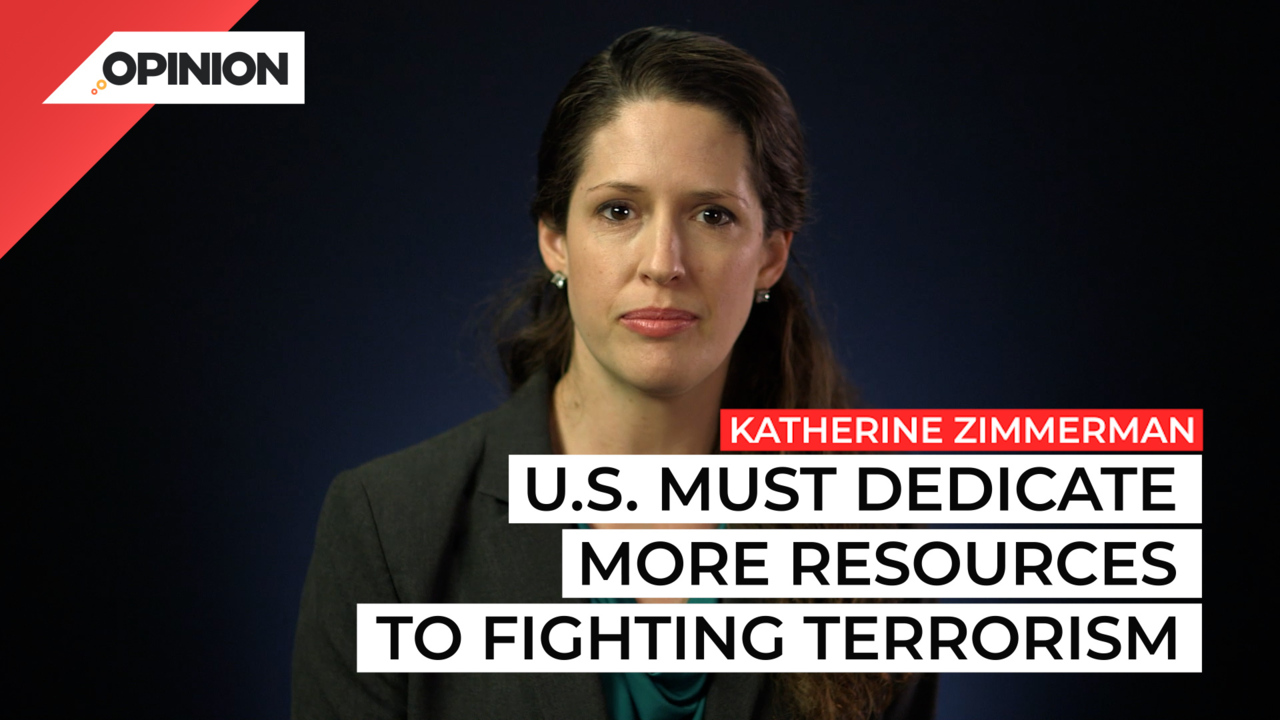
Commentary
-
Our commentary partners will help you reach your own conclusions on complex topics.
What should we expect from al-Qaeda and the Islamic State in the coming year? Reflecting back on the past year, we might assume more of the same: continued growth in their sanctuaries, places like the Sahel in West Africa, Somalia and East Africa and Afghanistan, al-Qaeda in the Arabian Peninsula and Yemen.
What used to be al-Qaeda’s most virulent franchise will continue its comeback. And the Islamic State in Iraq and Syria will continue rebuilding after the destruction of its physical caliphate.
The big takeaway related to the terrorism threat is that based on trends in the past year, neither al-Qaeda nor the Islamic State pose a current and significant threat to the US homeland. Instead, the regional branches will set their sights on closer targets, including on local American military forces or diplomats.
The greater domestic terrorism threat comes from right-wing extremism, followed by individuals inspired by al-Qaeda or the Islamic State, rather than transnational terrorist cells.
But such assumptions ignore some al-Qaeda affiliates’ stated attempt to strike the United States and demonstrated attempts to carry through on this threat. And they ignore how state actors like Russia interact with this non-state terrorism threat. Al-Qaeda in Yemen remains set in its pursuit of global jihad.
An Al-Shabaab cell was disrupted a few years ago planning another 911-style attack. The strengthening of nearly all of al-Qaeda’s and the Islamic State’s regional affiliates over the past year means these groups have more capabilities and resources as their sanctuaries expand.
Will they or some other elements revert to global jihad? And will the United States be able to catch the shift when they do?
As the U.S. military pulls back from counterterrorism operations, the intelligence picture becomes blurrier. True, even without troops inside Afghanistan, the United States tracked down al-Qaeda’s late leader Ayman al-Zawahiri and killed him in Kabul. But to some extent, the fact that al-Zawahiri felt comfortable frequenting his balcony, may have made him an easier target. His own defenses were down and he thought he was safe under the Taliban.
For more security conscious operatives who mask their activities, getting the intelligence for an over-the-horizon strike will be a challenge. The reduction in counterterrorism activities also affects U.S. relationships with African and Middle Eastern partners, at a time when Russia and China are seeking to expand their influence.
The primary assistance many of these partners seek is defense or security, often to combat al-Qaeda or the Islamic State groups. And the United States is simply doing less of it, creating space for Russia or others to enter the playing field, or in worst case scenarios, pushing the United States off the field.
Already Russia’s Wagner group is in Mali backfilling the French and seeking to enter neighboring states. What is more, al-Qaeda in the Islamic State thrive in insecure environments, as does Russia, creating a dangerous convergence in their interests and the possibility for Russian elements to use the guise of counterterrorism to entrench themselves in countries threatened by al-Qaeda or the Islamic State.
In short, while the counterterrorism problem seems managed, it could morph rapidly into a real challenge for the United States without much notice, such as the persistent threat from al-Qaeda and the Islamic State.
While such a threat by no means requires the resources the United States has put toward counterterrorism in the past, it does mean the United States must dedicate sufficient resources to fighting al-Qaida and the Islamic State and building influence with its partners to prevent the threat from growing to distract from America’s strategic priorities.
-
US should help Yemen fight Houthis
Recent Houthi attacks on U.S. Navy vessels and U.S. counter-strikes against Houthi targets in Yemen have triggered a foreign policy debate on how the United States should proceed and on whether a larger U.S.-Houthi conflict might be imminent. Houthi leaders say that their aim is to impede Israeli trade and shipping, even though many of…
-
US must respond to threat from Iran-backed Houthis
Last month, the commander of Iran’s Islamic Revolutionary Guards Corps Quds Force told the head of Hamas’ military wing that Iran will do “whatever it takes” to support them in its war with Israel. Meanwhile, the Iranian-backed Houthi rebels in Yemen intensified attacks on commercial ships in the Red Sea, prompting U.S. warships to shoot…
-
US, Israeli counterterrorism policy must adjust after Hamas attack
Revered Israeli and U.S. intelligence agencies failed to detect the signs of an imminent Hamas attack on Israeli villages near the Gaza Strip. The surprise attack was planned within Hamas’s military wing and highlights both Israel’s intelligence blind spots as well as Hamas’s use of “old-school techniques” like in-person communication. Straight Arrow News contributor Katherine…
-
US must sustain pressure against al-Qaeda
The United States and its allies have severely reduced the capacity for al-Qaeda, the terrorist group behind the 9/11 attacks, to organize or carry out any large-scale terrorist attacks against the U.S. homeland. Recent U.S. intelligence assessments suggest al-Qaeda is weaker than ever in Afghanistan, while experts and international observers continue to warn that al-Qaeda is…
-
African coups demand US policy changes
A string of recent military coups toppling governments in the African Sahel, from Guinea to Sudan, poses new risks and challenges to the United States. France, formerly a key ally in African security affairs, has also massively reduced its forces on the continent, at times being chased out by pro-Moscow forces. Straight Arrow News contributor…
Latest Opinions
-
 U.S. Department of Defense
U.S. Department of Defense
Congress still trying to figure out how to reduce wasteful military spending
-
 DVIDS
DVIDS
US Navy, Air Force making waves with new weapons at RIMPAC
-
 Getty Images
Getty Images
Israeli PM Netanyahu meets with Trump at Mar-a-Lago
-
 Getty Images
Getty Images
Growing US nuclear power resurgence reaches the nation’s heartland
-
 Getty Images
Getty Images
Beer from the sun, other solar thermal projects get government funding
Popular Opinions
-
In addition to the facts, we believe it’s vital to hear perspectives from all sides of the political spectrum.


